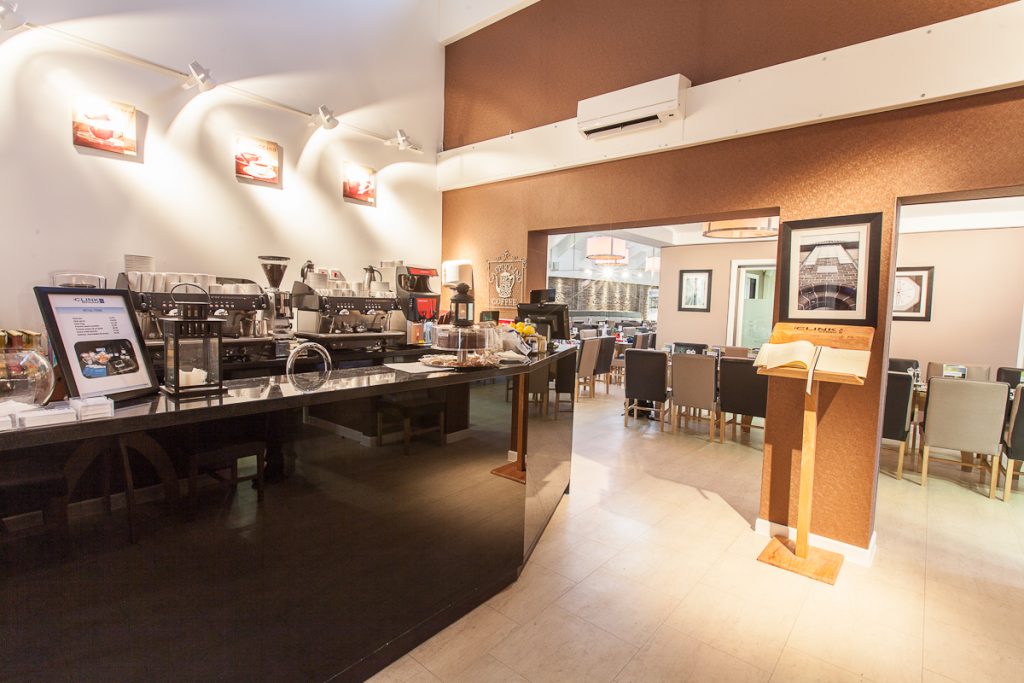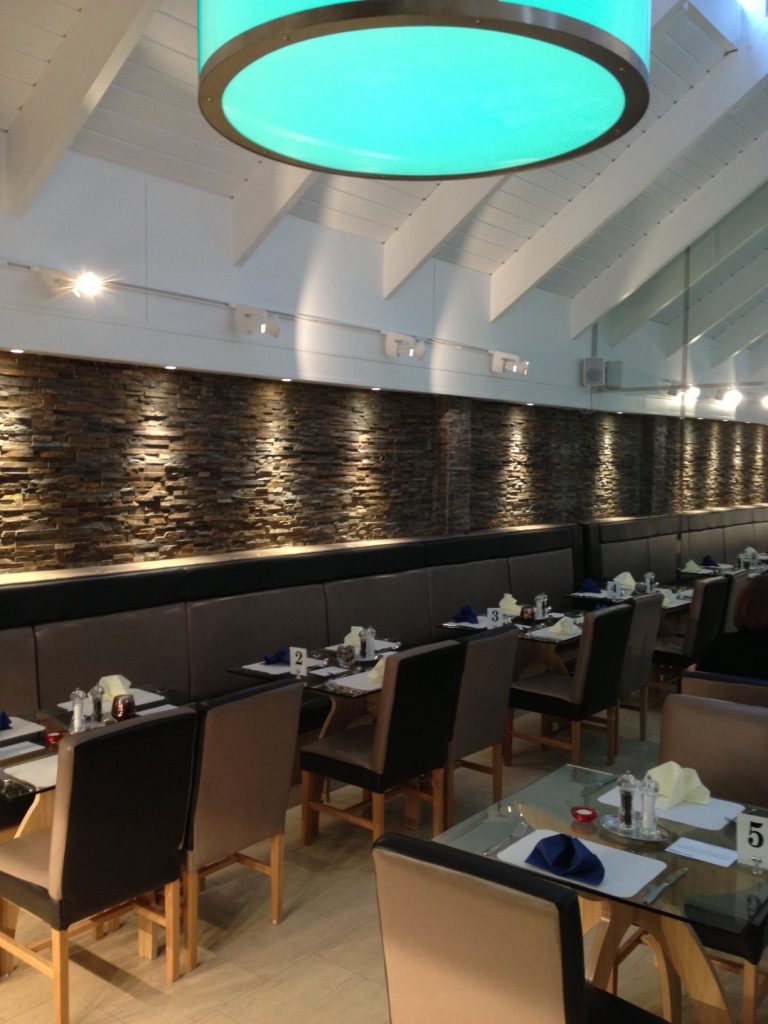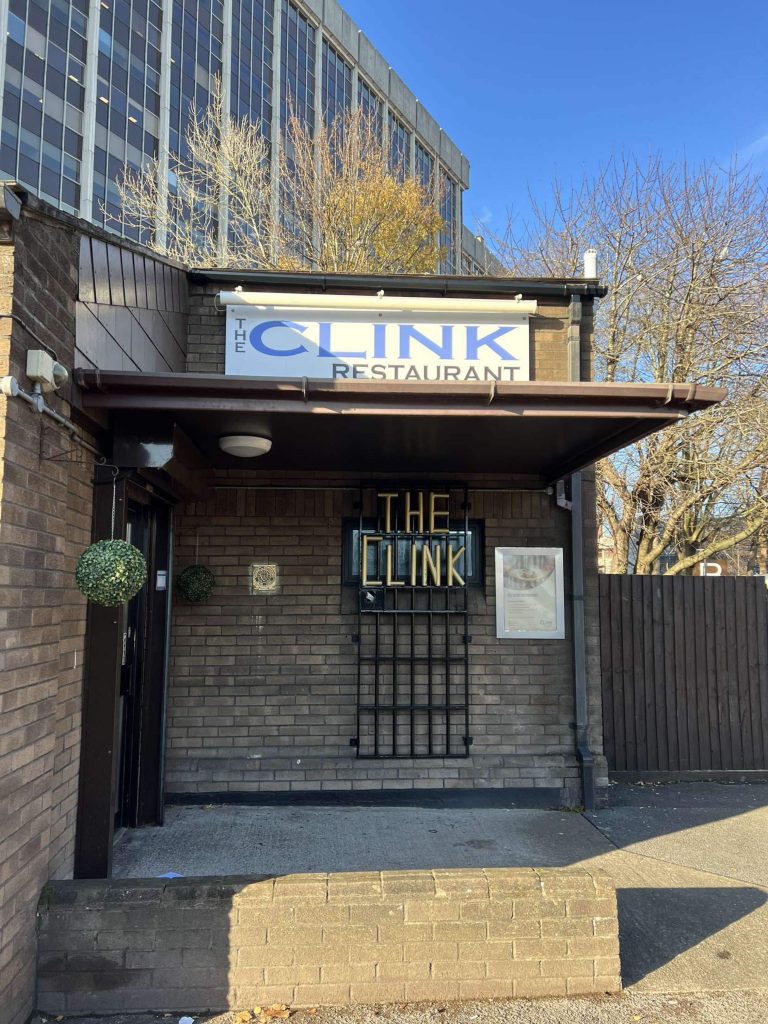The Clink restaurant put hope on the menu for prisoners but what did this unusual experiment achieve?
FOR 10 years The Clink has demonstrated an eye-opening effect on prisoner reoffending rates.
The restaurant, in the shadow of HMP Cardiff, gave serving prisoners the opportunity to obtain qualifications and experience in the food industry and offered them hope for a life on the other side of the barbed wire wall.
But the charity wasn’t just an idealistic endeavour – it had real impact on prisoner reoffending rates, which are notoriously difficult to disrupt.
“This year 72% of all Clink graduates went into employment. And that compares with 17% of the overall prison population,” says Yvonne Thomas, chief executive of The Clink charity.
Despite its success The Clink has shut its doors, and that has been tough to take for the people who are living proof of its powers.
Chloe, a barista at the restaurant, is moved to tears: “This place is a credit to Cardiff and it should not be closed down.”



Chloe was on community service when she began working for The Clink.
“I’ve stayed out of trouble since I’ve been in The Clink,” she says.
“I haven’t been locked up. I’ve changed my life around. I want to better myself.”
How The Clink works
The prisoners serving at The Clink do not come from HMP Cardiff, just across the road.
Instead, they come from Category D prisons – also known as ‘Open Prisons’ – such as Prescoed Prison in the village of Coed-y-Paen, Monmouthshire.
Category D prisons grant inmates the privilege of a ‘release on temporary license’ (ROTL), which allows them to leave the prison for work. Staff at The Clink would begin their training in the final six months to two years of their sentence.
The charity then trains prisoners – or ‘students’, as they are referred to – with national vocational qualifications in Food and Beverage Service, Professional Cookery, Food Hygiene and Barista Skills.
On release, The Clink Charity helps its graduates get jobs in the Welsh catering and hospitality industry and provides probation support workers to both prisoners and community service offenders to help them reintegrate into society.
Michael was at Prescoed open prison in Monmouthshire when he began working at The Clink as a front-of-house staff member.


“Being at The Clink has shown me a bit of normality and made me want it,” he said.
Sadly, this pathway back to normality will no longer be available. The charity’s staff, students and graduates feel its closure will have a damaging impact on both Cardiff’s society and future generations of prisoners.
There is a great deal of sadness at its closure.
“What this place can do for people – and what they do for people afterwards – is invaluable,” says Michael.
“It’s ongoing. It’s not just as simple as coming into work and getting a qualification. It’s the whole support.
“It’s a massive thing, and they are just going to shut it down for what?”
So why is it shutting?
The building which houses The Clink is owned by the Ministry of Justice.
The nearby HMP Cardiff doesn’t offer a temporary release licence because it is a Category B prison for more serious offenders. That’s why students at The Clink came from Prescoed, in the village of Coed-y-Paen, 30 miles away.
The Ministry of Justice told The Cardiffian that the decision to close The Clink was a financial one: “It was not deemed a viable use of taxpayer money to bring prisoners from elsewhere.”
What does the closure mean for Cardiff?
“It shouldn’t be going anywhere because of what we do, who we train and the success rate that comes out of here, specifically in Cardiff,” said Neil Delahay, general manager of the restaurant.
“We have no new learners now, we have what we have, and then it finishes in Cardiff. It just ends.”
Mr Delahay previously worked at restaurants that took in staff members of The Clink. He was blown away by their work ethic and skill and continued to work closely with the charity, before becoming The Clink’s manager at the start of 2021.
“Looking from the outside in, to receive these guys who have had some really good training and on-point skills was excellent,” he says.
“They were working their socks off because they wanted to, not just chasing the money. They wanted to improve themselves and prove they can do it, and jump on board and grow.
“In six to 12 months, we can turn around someone who has never cooked before, into a highly competent chef.”
The impact of its closure is immeasurable in terms of how it has changed perception of prisoners among the people of Cardiff.
Lisa-Marie Butler was the first support worker at The Clink and has been with the restaurant for nine years.
“I think we have broken the stigma of what someone who goes to prison is like, and what a prisoner looks like,” said Mrs Butler.
“When it first opened, people were intrigued to come in. They thought ‘serving prisoners?’. I don’t think they knew what to expect. When you walk through that door there, you don’t expect to walk into something that is as well laid out as The Clink and with its atmosphere.”
Katie Harris, another support worker at The Clink, worked as a prison officer for three years before joining the charity. Support workers work closely with the students while they complete their qualifications and continue to offer that support upon release.
“I would see boys getting released but the prison couldn’t provide the staff for support,” said Katie.
“There’s only so much you can do to prepare them. We’d see the same faces going out and coming back in. I feel like The Clink does pick up those gaps.”

The ‘gap’ through which people can fall has now opened up again.
Yvonne Thomas, chief executive of The Clink charity, said the mission of the Clink Charity is “to absolutely stop reoffending,”
“It seems to me to be a very effective, very proactive and pro-social way of actually improving society for everyone concerned,” she said.
“I think until we’re gone, people are not going to realise how much of that impact we actually had in reducing reoffending rates in Cardiff,” said Lisa-Marie Butler.
“This year 72% of all Clink graduates went into employment. And that compares with 17% of the overall prison population,”
Yvonne Thomas
The legacy
The restaurant is now closed and the building is set to become a visitor centre for HMP Cardiff.
“Its going to be used to maintain family ties, which cuts reoffending and saves taxpayer money,” said the MoJ.
But while the restaurant is closing the charity which runs it continues. It is now opening The Clink Kitchens, which will operate within HMP Cardiff and other prisons across the UK.
“Despite the decision to close it, HMPPS is fully supportive of the work the Clink charity has done and is planning to expand the role out of The Clink kitchens across the prison estate,” a spokesperson for the Ministry of Justice told The Cardiffian.
The Clink’s success has been, at least in part, adopted UK-wide by the government.
The future
Chloe wants to become a support worker with the charity in the future.
Michael wants to work with young people and teach them about the hard reality of dealing drugs.
The last remaining students will graduate with their qualifications and be supported in finding work in the Welsh hospitality industry.
And then that’s it for The Clink in Cardiff.
There will be no more students. The public will no longer get to experience first-hand what a prisoner is like.
Rehabilitation rates among the Welsh prison population will likely be affected. That means more crimes being committed in our communities and more people going back to prison.


